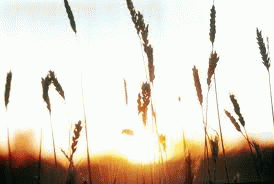North Dakota wheat by United Nations
By Walter Brasch
Fracking--the process the oil
and gas industry uses to extract fossil fuel as much as two miles below the
ground--may directly impact the nation's water supply, reduce water-based
recreational and sports activity, and lead to an increase in the cost of food.
The cocktail soup required for
each well requires about two million pounds of silica sand, as much as 100,000 gallons
of toxic chemicals, and three to nine million gallons of fresh water. There are
more than 500,000 active wells in the country.
In
2011, the last year for which data is available, Texas energy companies used
about 26.5 billion gallons of water. Energy companies drilling Pennsylvania used
the second greatest amount of water, followed by Colorado and Arkansas. Nuclear
plants, which use more water, can recycle most of it. Because frack wastewater
is toxic, oil and gas companies can't recycle the contaminated water.
The water is provided by companies that draw up to three million gallons a day from rivers and lakes, by individuals who sell water from their ponds, and by municipalities. Steubenville, Ohio, is tapping one of its reservoirs to sell up to 700,000 gallons of water every day for five years to Chesapeake Energy, one of the largest players in the fracking industry.
Big EnergyHowever, fresh water is not unlimited.
Beginning about five years
ago, the water in the nation's aquifers has been decreasing significantly. The
depletion since 2008, according
to Leonard Konikow, a research hydrologist at the U.S. Geological Survey. is
about three times the rate as between 1900 through 2008.
Significant reductions in water
availability are now common for the 1,450 mile long Colorado River, which
provides water to about 40 million people in California and the southwest,
including the agriculture-rich Imperial Desert of southeastern California. Lake
Mead, a part of the Colorado system, provides water to Las Vegas and the Nevada
desert communities; its water level is close to the point where the Department
of the Interior will declare a water shortage and impose strict water-use
regulation.
The depletion of the rivers,
lakes, and aquifers is because of population growth, higher usage, climate
change, and a severe drought that has spread throughout the Midwest and
southwest for the past three years.
The C oalition for Environmentally Responsible Economies (CERES), basing
its analysis upon more than 25,000 wells, reports
almost 47 percent of wells that use fracking were developed in areas
with high or extremely high water stress
levels; 92 percent of all gas wells in Colorado are in extremely high-stressed regions; In Texas, 51 percent are in
high or extremely high stress water regions.
Water is so critical to
fracking that oil and gas companies have
been paying premium prices, as much as $1,000--$2,000 for about 326,000
gallons (an acre foot) and outbidding farmers in the drought-ravaged parts of
the country for the water; the normal price is about $30--$100 for the same
amount. Oil and gas drillers have also been trucking
in water to the Midwest and southwest from as far away as Ohio and
Pennsylvania. The companies are "going to pay what they need to pay," said
Dr. Reagan Waskom, director of the Colorado Water Institute at Colorado State
University.
If farmers have to pay more
for water, they will raise the prices of their product. If they can't get
enough water, because the energy companies are taking as much as they can get, they
grow fewer crops and reduce the size of their livestock herds; this, also, will
force food prices up. It's a simple case of supply and demand.
(Note: You can view every article as one long page if you sign up as an Advocate Member, or higher).





